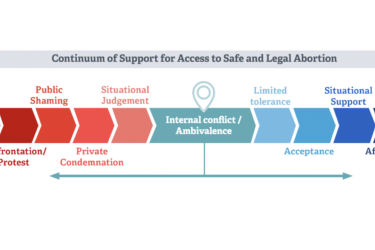
The placebo effect presents quite the conundrum to researchers attempting to discern whether a particular intervention truly offers clinical benefit for patients. Those most susceptible to the effect can feel so much better after a placebo that their “improvement” exceeds that of others taking a chemically active drug.
This problem may slow down the pipeline for new effective drugs, Erik Vance suggests in his recent Washington Post article, “People susceptible to the placebo effect may be keeping us from getting new drugs.” Vance notes that only five new treatments for pain were approved by the U.S. Food and Drug Administration in the past several years, despite 4,152 clinical trials on pain treatments in 2011 alone. Of course, that ratio is not far off from what might be expected, given how few drugs make it through the rigorous process of clinical trial phases and FDA approval. Still, Vance implies that the power of placebo effect can make it more difficult for drugs to overcome the hurdle of having a greater effect than a placebo.
Vance also discusses a potential solution to the problem that health journalists covering medical research should note. In writing about studies that use a placebo and find a substantial placebo effect, reporters may want to ask researchers about whether or how they screened for participants’ susceptibility to the placebo effect. Right now, the answer is likely to be that they didn’t. But that may change.
“People may differ in how susceptible they are to the placebo effect,” Vance notes. “If we could detect who would respond to placebos and exclude them from a trial, it would be much easier to tell if a therapy worked.”
He tells the story of a former biotech executive who learned that a gene called COMT helps regulate dopamine in the brain and appears to play a role in how susceptible individuals are to the placebo effect — thereby explaining why the response to placebo effects varies so dramatically across people, drug trials and interventions.
The former executive, Gunther Winkler, started a company to study this and discovered through analysis of large studies that screening out individuals particularly prone to placebo effect responses — based on that gene — could save companies millions of dollars. By including only those with a low likelihood of experiencing a placebo effect, clinical trials could involve fewer participants. Researchers would not need to worry about achieving a sufficiently large enough statistical power to overcome the placebo effect.
Meanwhile, researchers have identified several dozen genes that play a role in the placebo effect for other conditions. Such findings suggest significant potential for identifying patients most likely to experience a placebo effect. But they also reveal the complexity of teasing out genetic influences on a placebo effect. Winkler’s enthusiasm received skepticism from others that he is “getting ahead of the science,” Vance wrote.
And for a good reason. “One of the biggest problems … is that drug trials limited to people with, say, specific COMT genes might mean that the drug won’t be approved for the population at large,” Vance wrote of one criticism. One danger is that those excluded from taking the drug could be most likely to respond to it (or any other drug).
While researchers currently are not screening clinical trial participants for those more or less likely to experience the placebo effect, it’s not unfathomable that such a practice could come. It would add an extra layer to a study’s methodology that a reporter would need to ask about when interviewing a researcher.










